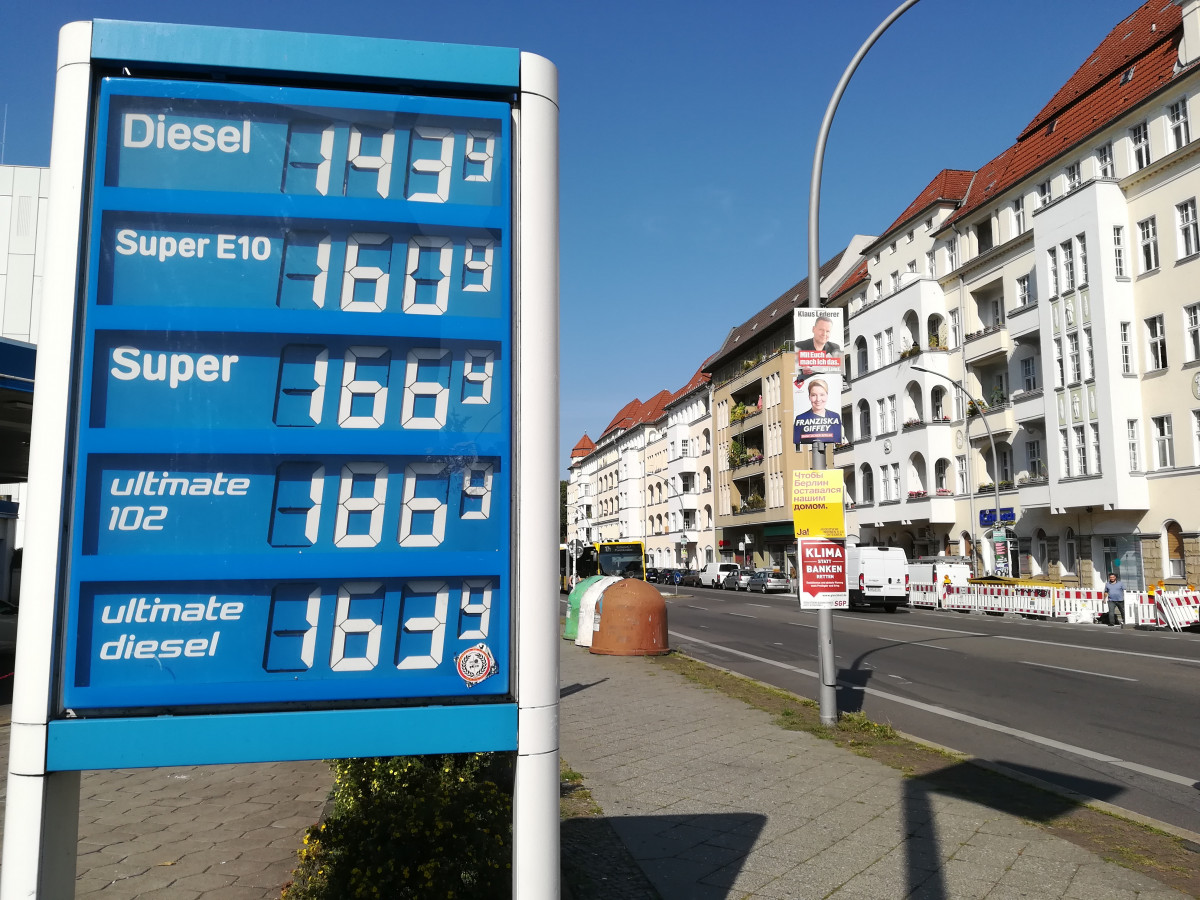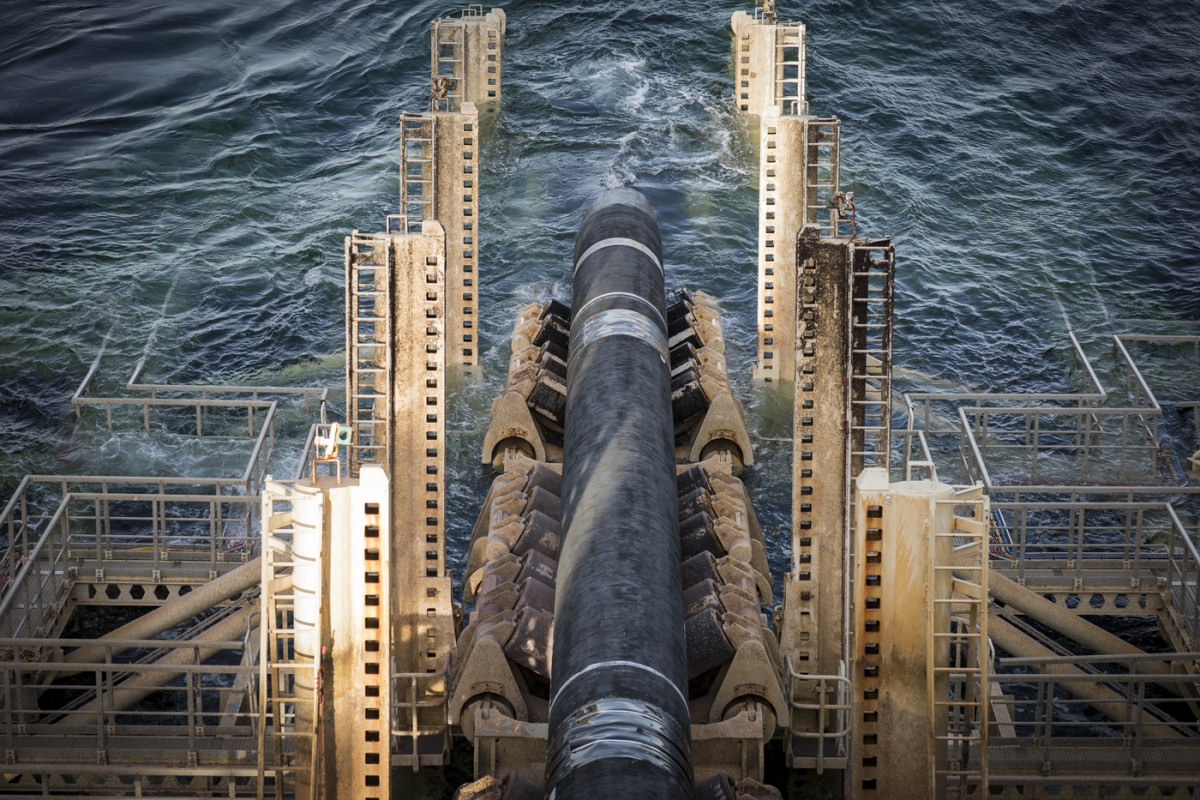Left Party rejects CO2 price for transport and heating as it aims for climate neutrality by 2035
Clean Energy Wire: What is your impression of the election campaign? Activists from Fridays for Future are talking about a “climate election.” Would you describe the campaign as one leading up to a climate election?
Lorenz Gösta Beutin: We are experiencing an extremely chaotic election campaign with incredibly charged discussions about some quotes in books but far too few policy concepts. How should we cope with the coronavirus crisis? How can we emerge from this crisis without letting renewed economic growth increase greenhouse gas emissions?
We on the left have said we want to emerge from this crisis by heeding certain key social and ecological principles. For now, this doesn't seem to be possible. How can we implement social justice and climate justice after this election? From our point of view, this is only possible with a change of policy, which can only be achieved without the CDU/CSU and the FDP - and certainly without the AfD.
The recently published IPCC (Intergovernmental Panel on Climate Change) report summarises the basics of climate science and sets out what different regions can expect to experience in the future - extreme weather events, droughts, sea level rise. Many politicians – you included - have said that the report shows that the pace of climate action needs to be much faster. Should you be part of a new government at the end of the year, what would be at the top of your list of priorities?
The Left Party has presented the most ambitious and concrete plan for fair climate action in its election programme. Of course, there are issues we must tackle in the different sectors.
We focus on regulatory policy and clear rules that no one can buy their way out of.
Topping the list of priorities is the core issue of the energy transition. This entails bringing forward the coal phase-out to 2030 and at least quadrupling or quintupling the expansion of renewable energies – onshore and offshore wind power and photovoltaics. But, of course, we also have to get to grips with the heating sector, or with changing the transport sector, where we are proposing very comprehensive measures. Alongside a speed limit and a change of drive technology, we focus above all on bus and rail transport. Overall, we need a shift in financial flows away from fossil fuels and towards sustainability and zero emissions.
Your party’s election manifesto claims to include the most ambitious climate targets in the field. What does The Left offer that others do not?
I would highlight two elements. Above all, we focus on regulatory policy and clear rules that no one can buy their way out of. The CDU is trying to frame this as a policy of prohibition, but I think that's nonsense, because we have seen in recent decades that a policy that relies only on incentives and the market is not capable of achieving what we need in terms of climate action. We have lost far too many years with the previous government’s inaction, so we now have to introduce clearer measures.
But these measures must also be socially just. It is not acceptable, for example, that large corporations are exempted from the renewables levy and that the burden is passed on to the general public. At the same time, we have seen rents rise during the coronavirus crisis, and then the CO2 price was added on top of that. The share of tenants among Germany’s total population is around 60 percent, so it's a big burden on them.
Is your election programme compatible with the 1.5°C target of the Paris Agreement?
It's difficult to say with certainty. We are aiming for climate neutrality by 2035, but the developments are simply not fully predictable. Yesterday I read a study by Konzeptwerk Neue Ökonomie that says that The Left Party’s ambition is closest to the 1.5°C target. The manifesto’s proposals are not enough yet but we still expect to be relatively close to that target.
In your programme, you call for Germany and the EU to be climate neutral by 2035. Do you think that is a realistic goal?
Well, that is the necessary target for a 1.5°C limit. And even then we will feel the effects of climate change very strongly. We are in the middle of a climate catastrophe and are increasingly noticing its effects in Germany as well. But the area hit hardest is the global South - Bangladesh, for example, where we have our shirts produced and where people drown in floods. Or Ethiopia, where agriculture is increasingly impacted by severe droughts and heavy rainfalls, forcing people to flee their homes.
What is often overlooked is that the devastating situation in the global South is primarily due to the fact that the rich industrialised countries like Germany - the fourth largest climate polluter on a historical scale - are responsible for further fuelling climate change. That is why we in Germany in particular must do everything possible to achieve climate neutrality and to keep global warming to 1.5°C.
When you talk about the 2035 target, do you mean only CO2 emissions or all greenhouse gas emissions?
All greenhouse gas emissions. That's why I'm so glad that at our federal party conference and also in our election programme we stated the need for a plan for a fossil gas phase-out. But, of course, this presupposes that we really drastically increase the pace of the expansion of renewable energies. Otherwise, the energy transition is bound to fail.
How do you intend to advance the expansion of renewables?
For one, the design of the renewables tender is a problem. It makes life more difficult for projects that enjoy a high level of acceptance among the population - citizen energy projects, municipal utilities, cooperatives. They cannot keep up with the large corporations that are now increasingly entering the market. Here we need exemptions for projects up to 18 MW in size.
We see the problems and dangers of CCS and propose using natural sinks - forests and peatlands.
At the federal level, the minimum distance rules for wind turbines from residential areas need to be abolished, such as the madness of the so-called 10H rule in Bavaria, which stipulates a minimum distance for turbines from the nearest residential building at least ten times their height. Another point would be a binding land use designation by the federal government. Two percent of the federal territory would be necessary for this, and that would also be something that the new government would have to tackle quickly.
Around 90 percent of the population supports stronger climate action. What is missing, however, is a courageous policy that does not consider climate action a burden but an opportunity to increase the quality of life in our cities and rural regions.
Still on climate neutrality: your party opposes carbon capture and storage (CCS). How does that fit together, given the likely residual emissions, especially from agriculture? Studies such as the one on climate neutrality in Germany by Agora Energiewende assume that natural sinks will not be sufficient.
We see the problems and dangers of CCS and propose using natural sinks - forests and peatlands. We continue to be very sceptical about CCS and believe that this is justified by the current state of affairs.
Nevertheless, the studies I just mentioned argue that the residual emissions will far exceed the potential of natural sinks in Germany. Would The Left Party, for example, consider using the seabed in the North Sea as a storage site? And would you allow Germany to export CO2 so that it is stored in Norway, for example?
For now, we reject this as it is very clearly stated in our programme. I cannot rule out the possibility that the research landscape will change and that we will have to reconsider this point. But we say quite clearly that at the moment we see other measures that we want to take and that must be taken.
Your manifesto is entitled "For social security, peace and climate justice." What do you mean by “climate justice” and what does such a concept entail for climate policy?
Climate justice has a national and a global dimension. Climate change is caused by industrialisation and the exploitation of people, especially in the global South. The way we use our Earth, exploit our resources and exploit people contributes to this. That is why climate change can only be fought globally, and that is why we have to think of climate action in socially just terms. This is not possible with a new colonialism. We cannot transfer today's energy system lock, stock and barrel to the post-fossil era, because then we would maintain the imbalances. Then we would be making ourselves green at the expense of the global South. Germany would dangle the euros and instead of pushing ahead with the energy transition itself, it would first pay other countries to do so.
At the national level, we have to look at the renewables levy and the CO2 price, for example. The biggest CO2 emitters in Germany - the energy-intensive industries - receive massive compensation. For us, this is simply incomprehensible if commuters and tenants are burdened at the same time. We propose other ways to direct the financial flows.
There are only a few references to the national CO2 price on transport and heating fuels in your programme. Are you in favour of this price?
We want to pursue a polluter-oriented climate policy. For us, this includes proposing a minimum price in emissions trading in the electricity sector, because it is still not clear how big a bubble the ETS could become. This minimum price would help push coal out of the market more quickly.
In the transport and buildings sectors, on the other hand, we are very sceptical about the effects of the carbon price. So far, it is a one-sided additional burden for tenants and there are problems in the transport sector as well: if I work in elderly care and commute in the countryside because public transport is not an option and I can't afford a new car, then I really have a problem. This is especially true for people on a low income.
We want to pursue a different path: we want to abolish fossil fuel subsidies and redirect the financial flows.
In other words, you would enter the talks to form a new coalition with the demand to abolish the CO2 price in the transport and buildings sectors?
Of course. We think this price is wrong, especially today, when the alternatives are not clear yet.
I can understand the attitude of my colleagues [who support Nord Stream 2]. However, I believe that fossil gas must not have a long-term perspective if we are serious about climate action.
Look at Germany’s neighbours: Denmark, for example, has increased the subsidies for renewable heat very significantly and at the same time banned the installation of new oil and gas heating systems as early as in 2013. The share of renewables in district heating in Denmark is around 60 percent, whereas the respective figure is 14 or 15 percent in Germany. This shows that the regulatory measures work. Denmark has a very low CO2 price and it is assumed that the incentive effect has occurred primarily through regulatory law.
We would go into the coalition talks with the demand to abolish this price. However, it is highly unlikely that the Left Party will win 50-plus percent of the vote, which is why we have set ourselves other central goals on this issue. For example, we demand that the price be passed on to the landlords, i.e. those who can actually change something in the housing sector.
We need a coalition to the left of the CDU/CSU and the FDP in Germany to actually have a real policy change towards climate justice.
Your party calls for a coal phase-out by 2030. Many analysts and economists assume that this will already happen through the market alone, for example through higher ETS prices. Would a new official target be more than just a symbolic political statement?
There are two different paths for the coal phase-out. The difference becomes clear when you look at what the FDP wants and what The Left Party wants. The FDP also says it wants to achieve climate neutrality as quickly as possible, but it aims to rely more on the market and on emissions trading as key instruments. In the end, however, these can hardly ensure social justice. It took about ten years for the EU ETS to really take effect and we still don't know to what extent this will continue.
If I have a clear exit path for coal, a clear plan on how the structural change should take place - not so much through investments in concrete and asphalt as the German government wants, but in railways, or by promoting social engagement in the affected regions - then I have planning security for the employees and can organise a fair transition. We are convinced that climate action will only work if we involve the entire population and include social justice as a key requirement in this process.
The Left is the only major party calling for a law on the phase-out of natural gas. But you do not specify a date. When should the gas phase-out take place?
We aim for climate neutrality by 2035, but of course this doesn't rule out the possibility that smaller gas-fired power plants that can be used flexibly can step in during times of little wind or sun - as long as storage facilities are not yet sufficiently available. That's why I don't know whether climate neutrality could actually be achieved by 2035 or only later. That depends on how quickly we can organise the expansion of renewable energies. If we have our way, 100 percent green electricity would be in the grid well before 2035.
But we need a plan for that. At the European level, we are seeing an expansion of gas infrastructure instead - both LNG ports and pipelines. We will have a problem if the 'cold war' over gas is fought on European soil, and the energy transition will suffer as a result. We know very well that the expansion of the gas infrastructure is a bet by the corporations on the failure of climate action. We must prevent this and say clearly: we also want to get out of gas, and if you build new infrastructure here, then these become stranded investments.
Meanwhile, your party supports the Nord Stream 2 pipeline, which is designed to last for decades…
That is what my parliamentary group in the Bundestag has decided. Diplomacy with Russia was the central consideration so as not to completely lose contact with Moscow. This is why I'm very glad that we have the gas phase-out law in our election manifesto, because it's the right thing to do in terms of energy and climate policy. The potential for alternatives is also there in Russia, and Russia is also struggling massively with the effects of climate change and is called upon to put the energy transition on the right track.
In light of the decision to support a major natural gas infrastructure project such as Nord Stream 2, what is it like to work as a climate and energy expert within your parliamentary group?
I can understand the attitude of my colleagues from Mecklenburg-Western Pomerania [where Nord Stream 2 lands in Germany], because jobs in that area are also at stake. However, I believe that fossil gas must not have a long-term perspective if we are serious about climate action.
I understand their position, but I don't share it. Instead, I say: if we are serious about climate justice, then we have to tell people the truth and say in which direction we are going and how we are going to create new jobs.
If we travel to COP26 in Glasgow by plane, it costs about 150 euros and takes 4-5 hours. If we go by train, which we would like to do, it takes 16 hours with uncertain connections and costs 800 euros. That's insane.
Turning to the transport sector: you argue that new combustion engine cars should not be registered after 2030. Should the same number of cars still be sold then as today?
Not if we have our way. We propose downsizing across the board. We want smaller cars, to move away from SUVs. Furthermore, we want CO2 limits for not only for the entire fleets of manufacturers, but for each model. It is not acceptable that certain models, which have extremely high CO2 emissions, should be glossed over. And we have to reduce the total number of cars. We must move from a car-friendly to a climate-friendly and socially just society.
We are actually quite optimistic. On the one hand, the e-mobility infrastructure must be expanded. But on the other hand, we need to fundamentally rebuild our cities and connect the rural regions.
We also propose a ban on short-haul flights, because these can also be replaced by trains.
Of course, rail travel must become much cheaper. I looked at the situation during the climate conference in Glasgow: if we travel there by plane, it costs about 150 euros and takes 4-5 hours. If we go by train, which we would like to do, it takes 16 hours with uncertain connections and costs 800 euros. That's insane. Glasgow could also be easily reached with a good European train service, but unfortunately it is not yet available.





